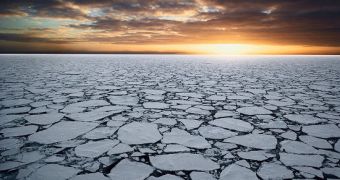A recent meeting of the Commission for the Conservation of Antarctic Marine Living Resources was supposed to lead to the creation of several massive sanctuaries in the Antarctica.
Thanks to Russia's decision to veto plans to protect the Ross Sea, otherwise known as the world's “last ocean,” and other ecosystems in this part of the planet, that was not the case.
Mongabay says that, over these past few years, conservationists and even high officials have been struggling to have Antarctica's Ross Sea declared as protected area.
More precisely, both the United States and New Zealand hoped that 2.3 million square kilometers of the Ross Sea would get legal protection.
Seeing how these waters are home to numerous penguins, whales, seals and fish, it made sense that this should be so.
More so given the fact that, until now, the Ross Sea has remained largely unaffected by the environmental pollution that led to the degradation of most marine ecosystems.
On the other hand, Australia, France and the EU asked that seven protected areas amounting to 1.9 million square kilometers be established along East Antarctica's coastline.
This proposal did not sit right with Russia either.
Commenting on the outcome of this meeting, Steve Campbell, the current director of the Antarctic Ocean Alliance, says that, “After two years of preparation, including this meeting, which Russia requested to settle the scientific case for the Ross Sea and East Antarctic proposals, we leave with nothing.”
All things considered, it is likely that Russia has vetoed the proposals to set up these protected areas because it is one of the few countries whose fleet still goes fishing in these waters.
Therefore, it probably feared that, should the new marine sanctuaries be created, its economy would be upset.
Interestingly enough, nobody ever said anything about banning fishing in the Antarctica altogether.
On the contrary, the people who came up with the proposals merely asked that a new set of regulations be implemented and that some no-go zones be established.
Another meeting of the Commission for the Conservation of Antarctic Marine Living Resources is scheduled to take place this coming October. Many hope that Russia will change its mind by then.

 14 DAY TRIAL //
14 DAY TRIAL //